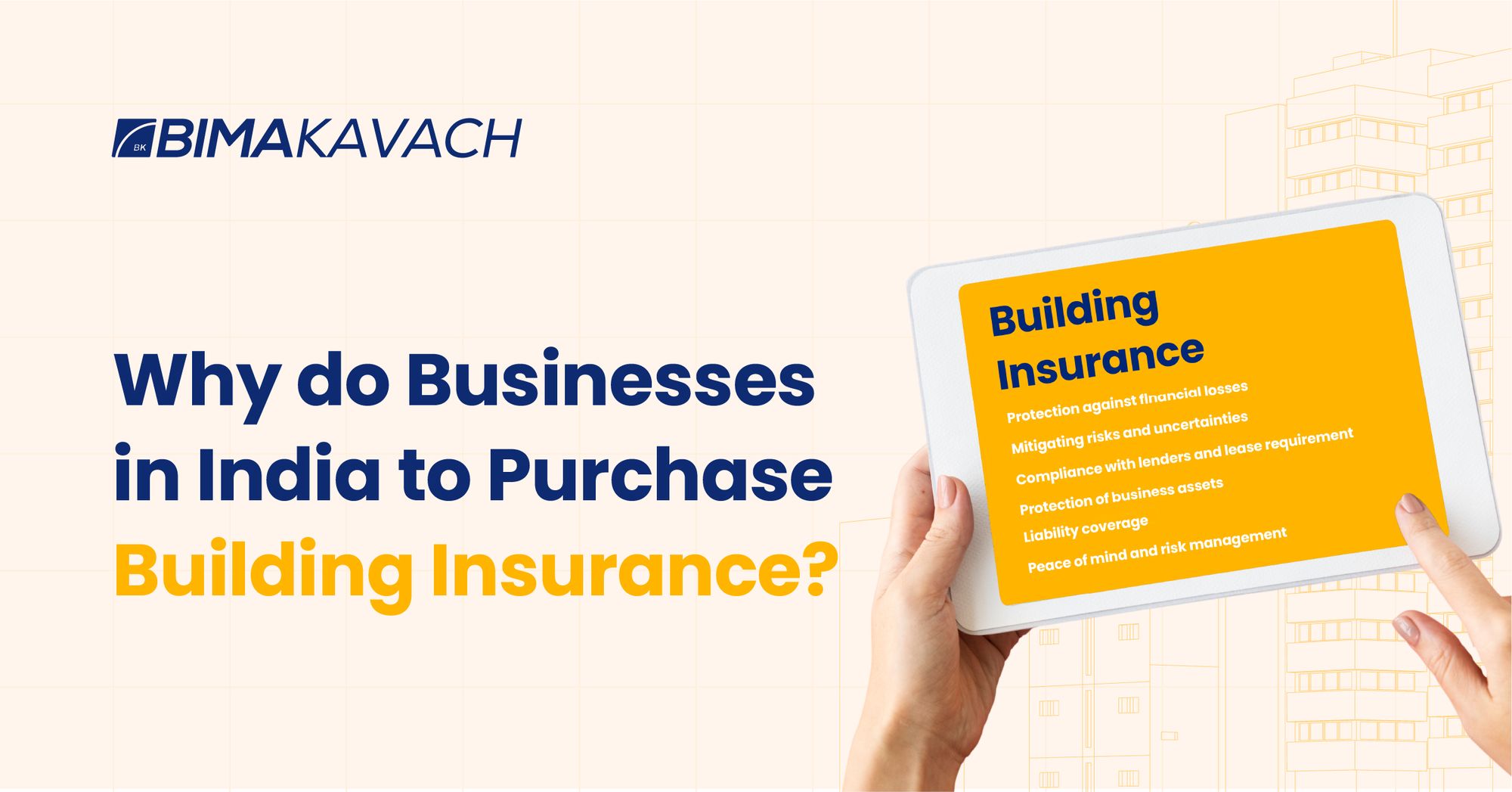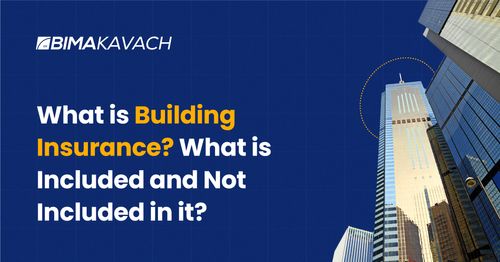When it comes to safeguarding your most valuable assets, building insurance emerges as a crucial aspect of responsible property ownership. Whether it's your cherished home or a commercial property that houses your business, the unpredictable nature of life necessitates adequate protection against unforeseen events. Building insurance provides a safety net, shielding property owners from financial losses caused by damage or destruction to their buildings. Understanding the fundamentals of building insurance is essential for ensuring peace of mind and securing your investment. By comprehending the importance of building insurance, you can take proactive steps to protect your property and mitigate potential financial losses.
In this article, we will explore the fundamentals of building insurance, its importance for commercial property owners and businesses, and why it is considered a critical component of any comprehensive risk management strategy. We would unravel its intricacies and shed light on the reasons why it is an indispensable necessity for every business, regardless of its size or industry. After going through this article, you will be able to explore how building insurance can offer financial security and peace of mind to you.
Let’s start with the basics first!
What is Building Insurance Policy (Structural Insurance)?
Building insurance, also known as property insurance, is a type of insurance coverage that protects the physical structure of a building from various risks and perils. It provides financial compensation to property owners in the event of damage or destruction to their buildings caused by unforeseen events such as fires, floods, storms, earthquakes, vandalism, theft, or accidents. Building insurance typically covers the main structure of the building, including walls, roofs, floors, doors, windows, and permanent fixtures. It may also include coverage for essential systems like electrical wiring, plumbing, and heating/cooling installations. The purpose of building insurance is to provide financial support to repair, rebuild, or replace the damaged property, thereby reducing the financial burden on the property owner.
Get Free Quote in Minutes
What is covered in a building insurance policy?
A typical building insurance policy covers the following-
Fire Incidents
Fire can destroy any building structure, commercial or residential. This insurance policy protects you against fire-related losses or damages.
- Theft and Burglary
This insurance policy protects you against theft or burglary of your precious belongings such as jejewelry, cash, and so on.
- Electrical Failure
If there is an electrical breakdown and any electrical appliances are destroyed as a result of a sudden high power supply, this insurance will cover you for those losses as well.
- Natural Disaster
Earthquakes strike 60% of Indian land, floods damage 12% and cyclones 8%. Any damage or loss caused by a natural calamity such as floods, typhoons, cyclones and so on is covered by this policy.
- Man-Made Hazards
This insurance policy covers man-made calamities such as riots, terrorist attacks, and so on.
- Accidental Injury
Accidental damages can occur without warning and this insurance plan covers those damages.
- Accommodation
If the building covered by this policy is a residential one and a few of the flats in that building are damaged due to an earthquake, this insurance will cover alternative housing for the persons living in those damaged flats until they are repaired.
What is not covered in a building insurance policy?
Here are the things that are not covered under the building insurance policy.
- Damage due to War or warlike situation
Any loss or damage to the building caused by a war or warlike situation ( for example, invasion by a foreign country) is not covered.
- Collectables
If you collect antiques like coins, art, stamps, and so on and they get damaged, lost, or stolen, the same will not be covered by this policy.
- Old Items
This insurance policy does not cover items more than 10 years old.
- Consequential Loss
Consequential loss is a type of collateral damage that occurs as a result of damage to property, equipment or other tangible unit. This is considered an indirect loss. Such losses are not covered under this policy.
- Wear & Tear
This insurance policy does not cover wear and tear or damage caused by renovation or maintenance.
- Under Construction Property
This insurance policy does not provide cover for any under-construction building.
- Willful Act
This insurance policy will not cover any damage or loss caused by the insured's deliberate misconduct.
- Damage By Third-Party Construction
In case your building gets damaged during a third-party construction, this insurance plan will not provide cover for it.
- Land Cost
The cost of land is not covered under this policy.

Why do businesses in India need to purchase building insurance?
Businesses in India need to purchase building insurance for several reasons stated below:
- Protection against financial losses: Building insurance provides a safety net for businesses, protecting them from significant financial losses in case of damage or destruction to their physical structures. This coverage ensures that businesses can recover and rebuild without bearing the full financial burden on their own.
- Mitigating risks and uncertainties: Buildings are exposed to a wide range of risks and perils, including natural disasters like earthquakes, floods, or fires, as well as human-made risks like theft, vandalism, or accidents. According to an India Today report, a burglary or robbery occurs every three minutes in India. In 2017, there was a 40% increase in property theft in both residential and commercial establishments in India. Building insurance helps mitigate these risks by providing financial compensation to repair or rebuild the property, ensuring business continuity and minimizing disruptions.
- Compliance with lenders and lease requirements: Many lenders and landlords require businesses to have building insurance as a condition for providing loans or leasing commercial spaces. By purchasing building insurance, businesses can meet these contractual obligations, maintain positive relationships with lenders or landlords, and secure necessary funding or leasing arrangements.
- Protection of business assets: The physical structure of a building is often a significant asset for businesses, and its protection is crucial for the continuity of operations. Building insurance safeguards this asset, enabling businesses to recover quickly from damages and resume their activities, minimizing downtime and potential revenue losses.
- Liability coverage: Building insurance may also include liability coverage, protecting businesses from potential legal claims or expenses if someone is injured or suffers property damage within their premises. This aspect of building insurance provides businesses with financial protection in case of lawsuits or legal liabilities arising from accidents or injuries on their property.
- Peace of mind and risk management: Building insurance offers peace of mind to business owners, knowing that they have taken proactive measures to protect their valuable assets. By transferring the risks associated with property damage to the insurance provider, businesses can focus on their core operations without constant worry about potential financial setbacks caused by unforeseen events.
The footnote:
Building insurance policy is an indispensable tool for safeguarding your property investment and ensuring financial protection against unexpected perils. By understanding what is included and not included in building insurance coverage, property owners can make informed decisions to adequately protect their assets. The comprehensive coverage typically includes the physical structure of the building, essential systems, and ancillary structures, providing a safety net in the event of damages caused by natural disasters, accidents, theft, or vandalism.
However, it is important to carefully review policy terms and consult with insurance professionals to ensure that your specific needs and circumstances are adequately addressed. By securing the right building insurance coverage, you can have peace of mind knowing that your property is shielded from potential risks, allowing you to focus on enjoying and maximizing the value of your investment.

